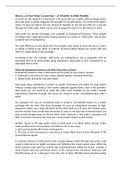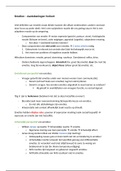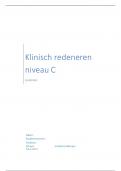Overig
Extra notities (verduidelijking) International Finance
- Instelling
- Katholieke Universiteit Leuven (KU Leuven)
Extra notities (verduidelijking) International Finance Niet bedoeld om individueel te verkopen, is geüpload voor package deal!
[Meer zien]





